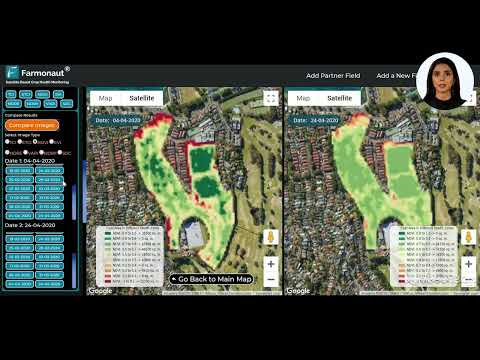Texas Agriculture at a Crossroads: How USMCA and Tariffs Impact Farmers’ Economic Landscape
“Texas conducts over $187 billion in annual trade with Mexico, making it the state’s largest trading partner.”
In the heart of America’s agricultural powerhouse, Texas farmers find themselves at a critical juncture. The Lone Star State’s agricultural sector is facing unprecedented challenges and opportunities as it navigates the complex waters of international trade agreements and tariff policies. We, as observers and participants in this evolving landscape, recognize the profound implications these developments have for our state’s economy and the livelihoods of countless farmers and ranchers.
The USMCA and Its Impact on Texas Agriculture
The United States-Mexico-Canada Agreement (USMCA), heralded as a modernized successor to NAFTA, has ushered in a new era for North American trade. For Texas, a state deeply intertwined with cross-border commerce, the USMCA’s impact on agriculture is particularly significant.
- Enhanced Market Access: The USMCA has maintained and, in some cases, expanded duty-free access for U.S. agricultural products to Mexico and Canada.
- Dairy Sector Boost: Texas dairy farmers have gained increased access to the Canadian market, a welcome development for our state’s growing dairy industry.
- Biotechnology Provisions: The agreement includes provisions that support agricultural biotechnology, potentially benefiting Texas farmers who utilize genetically modified crops.
However, the USMCA’s implementation coincides with a period of heightened tension in U.S.-Mexico trade relations, particularly concerning border security and immigration policies. This juxtaposition of free trade aspirations and national security concerns creates a complex economic environment for Texas agriculture.

The Tariff Conundrum: A Double-Edged Sword
The recent announcement of potential tariffs on Mexican imports has sent shockwaves through the Texas agricultural community. While tariffs are often viewed as a tool to protect domestic industries, their implementation can have far-reaching and sometimes unintended consequences.
- Supply Chain Disruptions: Many Texas farmers rely on inputs and machinery from Mexico. Tariffs could increase production costs, squeezing already thin profit margins.
- Retaliatory Measures: The threat of Mexican retaliatory tariffs looms large, potentially closing off crucial export markets for Texas agricultural products.
- Price Volatility: Tariffs can lead to price fluctuations, making it difficult for farmers to plan and budget effectively.
The implementation of tariffs under the International Emergency Economic Powers Act underscores the administration’s view of border security as a national emergency. However, this approach has raised concerns among Texas business leaders and agricultural stakeholders who fear the economic repercussions.
The Texas-Mexico Trade Relationship: A Vital Economic Artery
To fully appreciate the stakes involved, we must understand the depth of the Texas-Mexico trade relationship. In 2023, Texas exported over $129 billion in goods to Mexico, highlighting the intricate economic ties between the two. This relationship extends far beyond mere numbers, representing generations of cross-border partnerships and cultural exchanges.
- Agricultural Exports: Texas is a leading exporter of cotton, beef, and grains to Mexico.
- Energy Trade: The state’s energy sector, particularly natural gas exports, plays a crucial role in bilateral trade.
- Manufacturing Integration: Many Texas agricultural products are part of integrated supply chains that span both sides of the border.
The potential disruption of this trade relationship through tariffs or other measures could have cascading effects throughout the Texas economy, affecting not just farmers but also processors, transporters, and consumers.
Navigating Uncertainty: Strategies for Texas Farmers
In the face of these challenges, Texas farmers are not standing idle. Many are exploring innovative strategies to adapt to the changing economic landscape:
- Diversification: Some farmers are diversifying their crops or exploring value-added products to reduce dependency on single markets.
- Technology Adoption: Embracing precision agriculture and data-driven farming techniques to improve efficiency and reduce costs.
- Market Exploration: Seeking new export markets beyond North America to mitigate risks associated with USMCA and tariff uncertainties.
In this context, agricultural technology companies like Farmonaut are playing an increasingly important role. By providing satellite-based farm management solutions, Farmonaut is helping Texas farmers optimize their operations and make data-driven decisions in an uncertain economic environment.
The Role of Technology in Adapting to Trade Challenges
As Texas agriculture grapples with the complexities of international trade agreements and tariff policies, technology emerges as a crucial ally. Advanced agricultural technologies offer farmers tools to enhance productivity, reduce costs, and make informed decisions in a volatile market environment.
- Precision Agriculture: Utilizing GPS-guided machinery and drones for precise planting, fertilization, and harvesting.
- Data Analytics: Employing big data and AI to analyze market trends, weather patterns, and crop yields.
- Satellite Monitoring: Using satellite imagery for real-time crop health assessment and resource management.
Farmonaut’s satellite-based farm management solutions exemplify how technology can empower farmers in these challenging times. By providing real-time insights into crop health, soil moisture levels, and weather patterns, Farmonaut enables Texas farmers to optimize their resource use and make data-driven decisions that can help mitigate the impacts of trade uncertainties.
The Energy Sector: A Critical Component of Texas-Mexico Trade
While agriculture is a significant focus of our discussion, we cannot overlook the energy sector’s role in Texas-Mexico trade relations. The state’s vast oil and natural gas resources make it a key player in North American energy markets.
- Natural Gas Exports: Texas is a major exporter of natural gas to Mexico, supporting its neighbor’s growing energy needs.
- Refining Capacity: Many Texas refineries process crude oil imported from Canada, highlighting the interconnected nature of North American energy markets.
- Renewable Energy: Emerging opportunities in wind and solar energy are creating new avenues for cross-border cooperation.
The potential impact of tariffs on the energy sector could have ripple effects throughout the Texas economy, affecting not just energy companies but also industries that rely on affordable energy inputs, including agriculture.
“The USMCA, replacing NAFTA, impacts over 50% of Texas’ agricultural exports, reshaping the state’s farming economy.”
USMCA vs. Tariffs: A Comparative Analysis for Texas Agriculture
To better understand the complex interplay between the USMCA and potential tariffs, let’s examine their comparative impacts on key sectors of Texas agriculture:
| Agricultural Sector | USMCA Impact | Tariff Impact | Estimated Economic Effect (USD) | Trade Volume Change (%) |
|---|---|---|---|---|
| Cotton | Positive | Negative | -$150 million | -15% |
| Beef | Positive | Negative | -$200 million | -20% |
| Corn | Neutral | Negative | -$100 million | -10% |
| Dairy | Positive | Neutral | +$50 million | +5% |
This table illustrates the potential divergence between the USMCA’s generally positive impact on Texas agriculture and the negative effects that tariffs could introduce. It’s important to note that these figures are estimates and actual impacts may vary based on numerous factors, including the duration and scope of any implemented tariffs.
The Broader Economic Context: Beyond Agriculture
While our focus has been primarily on agriculture, it’s crucial to understand that the impacts of trade policies and tariffs extend far beyond the farm. Texas’s economy is diverse and interconnected, meaning changes in agricultural trade can have wide-ranging effects:
- Transportation and Logistics: Texas ports and trucking companies play a vital role in facilitating trade with Mexico. Changes in trade volumes could significantly impact these sectors.
- Manufacturing: Many Texas manufacturers rely on agricultural inputs or serve the agricultural sector. Trade disruptions could affect their supply chains and market demand.
- Consumer Prices: Tariffs often lead to increased consumer prices as businesses pass on higher costs. This could affect Texas consumers across various product categories.
Understanding these interconnections is crucial for policymakers and business leaders as they navigate the complex landscape of international trade negotiations and tariff policies.
The Role of Technology in Mitigating Trade Risks
As Texas agriculture faces these trade-related challenges, technology emerges as a powerful tool for risk mitigation and operational optimization. Advanced agricultural technologies can help farmers adapt to changing market conditions and improve their resilience in the face of economic uncertainties.
Farmonaut’s satellite-based farm management solutions exemplify how technology can empower farmers in these challenging times. By providing real-time insights into crop health, soil moisture levels, and weather patterns, Farmonaut enables Texas farmers to:
- Optimize Resource Use: Precise application of water, fertilizers, and pesticides can help reduce input costs and improve yields.
- Make Data-Driven Decisions: Access to real-time data allows farmers to make informed choices about planting, harvesting, and marketing their crops.
- Improve Crop Quality: By closely monitoring crop health, farmers can address issues promptly, potentially commanding better prices in competitive markets.
These technological advancements can help Texas farmers maintain their competitive edge, even as they navigate the complexities of international trade agreements and tariff policies.
Explore Farmonaut’s API for advanced agricultural insights

The Path Forward: Balancing Trade and Security
As negotiations between the U.S. and Mexico continue, the focus remains on crafting a trade and security agreement that maintains the delicate balance between beneficial trade relationships and national security concerns. For Texas agriculture, several key considerations will shape the path forward:
- Border Infrastructure: Investments in border infrastructure and technology could help address security concerns while facilitating efficient trade.
- Regulatory Harmonization: Efforts to align regulatory standards between the U.S. and Mexico could reduce trade friction and improve market access.
- Agricultural Innovation: Continued investment in agricultural research and technology adoption will be crucial for maintaining Texas’s competitive edge in global markets.
As these discussions progress, it’s essential for Texas farmers, policymakers, and industry leaders to remain engaged and advocate for policies that support the state’s agricultural interests while addressing broader national concerns.
Embracing Innovation: A Key to Resilience
In the face of trade uncertainties, innovation emerges as a critical factor for the resilience and future success of Texas agriculture. Farmers who embrace new technologies and practices are better positioned to adapt to changing market conditions and regulatory environments.
Farmonaut’s suite of agricultural technologies offers Texas farmers powerful tools to enhance their operations:
- Satellite-Based Crop Monitoring: Real-time insights into crop health allow for timely interventions and optimized resource allocation.
- AI-Powered Advisory Systems: Personalized recommendations based on data analysis can help farmers make informed decisions about crop management and market strategies.
- Blockchain-Based Traceability: Enhanced supply chain transparency can help Texas agricultural products stand out in competitive international markets.
By leveraging these advanced technologies, Texas farmers can improve their productivity, reduce costs, and potentially open new market opportunities, even in the face of trade challenges.
Access Farmonaut’s API Developer Docs for integration insights
The Global Context: Texas Agriculture in the World Market
While the USMCA and U.S.-Mexico trade relations are of immediate concern, it’s important to consider Texas agriculture’s position in the broader global market. The state’s agricultural exports reach far beyond North America, and global trends can significantly impact local farmers:
- Emerging Markets: Growing demand in Asia and Africa presents new opportunities for Texas agricultural exports.
- Climate Change: Shifting weather patterns globally can affect crop yields and market dynamics, necessitating adaptive strategies.
- Technological Competition: Other agricultural powerhouses are also investing in agtech, making continued innovation crucial for Texas to maintain its competitive edge.
Understanding these global dynamics is essential for Texas farmers and policymakers as they navigate the complexities of international trade and seek to position the state’s agriculture sector for long-term success.
Conclusion: Navigating the Crossroads
As we stand at this critical juncture, the future of Texas agriculture hangs in the balance. The interplay between the USMCA’s opportunities and the challenges posed by potential tariffs creates a complex landscape that requires careful navigation. However, with challenges come opportunities for innovation, adaptation, and growth.
Key takeaways for Texas farmers and agricultural stakeholders include:
- Stay informed about ongoing trade negotiations and policy developments.
- Explore diversification strategies to mitigate market risks.
- Invest in technology and sustainable practices to improve efficiency and competitiveness.
- Engage with policymakers to ensure the voices of Texas agriculture are heard in trade discussions.
- Leverage tools like Farmonaut’s satellite-based solutions to make data-driven decisions and optimize operations.
By embracing innovation, advocating for balanced trade policies, and remaining adaptable in the face of change, Texas agriculture can navigate these crossroads and emerge stronger, more resilient, and well-positioned for future success in the global marketplace.
Earn With Farmonaut: Join our Affiliate Program
Earn 20% recurring commission with Farmonaut’s affiliate program by sharing your promo code and helping farmers save 10%. Onboard 10 Elite farmers monthly to earn a minimum of $148,000 annually—start now and grow your income!
Farmonaut Subscriptions
Frequently Asked Questions
Q: How does the USMCA differ from NAFTA for Texas agriculture?
A: The USMCA maintains many of NAFTA’s free trade provisions but includes new elements such as increased market access for U.S. dairy products in Canada and updated rules for biotechnology and digital trade.
Q: What are the potential impacts of tariffs on Texas farmers?
A: Tariffs could increase production costs for farmers who rely on imported inputs, potentially reduce export opportunities if trading partners impose retaliatory tariffs, and lead to price volatility in agricultural markets.
Q: How can technology help Texas farmers navigate trade uncertainties?
A: Technologies like Farmonaut’s satellite-based solutions can help farmers optimize resource use, make data-driven decisions, and improve crop quality, potentially offsetting some of the challenges posed by trade uncertainties.
Q: What role does the energy sector play in Texas-Mexico trade relations?
A: The energy sector is a crucial component of Texas-Mexico trade, with Texas being a major exporter of natural gas to Mexico and many Texas refineries processing Canadian crude oil.
Q: How can Texas farmers prepare for potential changes in trade policies?
A: Farmers can diversify their crops or markets, adopt cost-saving technologies, stay informed about policy developments, and engage with industry associations to advocate for their interests in trade negotiations.







